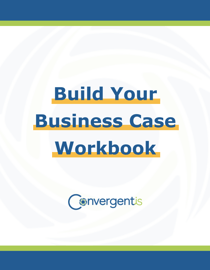Procurement is a crucial function in modern business, influencing an organization's efficiency, cost management, and overall performance. Even though procurement is traditionally seen as a back-office task, procurement has evolved into a strategic function that directly impacts a company's bottom line and competitive advantage.
Modern technology including invoice automation, evaluated receipt settlement (ERS) and RPA has automated some procurement tasks that typically required major overhead.
Understanding the Importance of Procurement Efficiency and Transparency
Efficiency and transparency are paramount in procurement for several reasons. Firstly, efficient procurement practices directly impact cost management by facilitating optimized purchasing decisions, adept contract management, and nurturing strong relationships with suppliers. Through streamlined processes, organizations can achieve cost savings, enhancing their financial health and competitiveness in the market.
Transparency in procurement serves as a crucial tool for mitigating risks such as fraud, corruption, and non-compliance with regulations. By maintaining clear and accountable practices, companies safeguard their reputation and financial stability, fostering trust among stakeholders and investors.
Moreover, transparent procurement practices promote collaboration with suppliers, laying the groundwork for mutual trust and cooperation. This collaboration not only enhances negotiation outcomes but also drives improvements in product quality and encourages innovation within the supply chain.
Lastly, embracing data-driven decision-making in procurement empowers organizations with real-time insights and analytics. This data-driven approach enables informed decision-making, leading to continuous improvement in procurement strategies and better alignment with organizational objectives. By leveraging data effectively, companies can adapt to market dynamics more swiftly and optimize their procurement processes for sustained success.
Leveraging Technology in Procurement
Technology has revolutionized procurement by automating manual tasks, providing real-time insights, and enhancing collaboration across the supply chain. Here's how various technological solutions contribute to improving procurement efficiency and transparency:
Enterprise Resource Planning (ERP) Systems
Enterprise Resource Planning (ERP) systems like SAP play a pivotal role in revolutionizing procurement processes by offering comprehensive solutions that seamlessly integrate various aspects from sourcing to payment management. SAP's procurement modules are designed to enhance operational efficiency and accuracy by streamlining workflows, centralizing data, and automating repetitive tasks. Key features include:
- Procure-to-Pay (P2P) Automation: This functionality enables organizations to automate the entire procurement cycle, starting from requisitioning of goods or services to the reconciliation of invoices. By automating these processes, SAP significantly reduces cycle times, minimizes errors, and enhances overall efficiency within the procurement workflow. Furthermore, P2P automation ensures smoother transactions and improves compliance with internal policies and regulatory requirements.
- Supplier Relationship Management (SRM): These modules provide tools for supplier onboarding, performance evaluation, and collaboration. By facilitating transparent and collaborative relationships with suppliers, SAP SRM fosters trust and accountability. Organizations can effectively manage supplier interactions, monitor performance metrics, and identify areas for improvement, thereby enhancing overall procurement effectiveness.
- Analytics and Reporting: These analytics tools enable stakeholders to track spending patterns, monitor supplier performance, and assess compliance metrics. By leveraging these insights, organizations can make data-driven decisions, identify cost-saving opportunities, and optimize procurement strategies for enhanced performance and competitiveness in the market.
E-Procurement Platforms
E-procurement platforms like SAP Ariba offer cloud-based solutions for managing procurement activities, connecting buyers and suppliers in a digital marketplace. These platforms enhance transparency and efficiency through:
- Sourcing Optimization: SAP Ariba's sourcing tools enable organizations to identify the best suppliers, negotiate contracts, and manage bidding processes transparently.
- Supplier Collaboration: Ariba Network facilitates seamless communication and collaboration between buyers and suppliers, ensuring transparency throughout the procurement lifecycle.
- Compliance Management: E-procurement platforms help organizations enforce compliance with internal policies and regulatory requirements, reducing the risk of non-compliance penalties.
Blockchain Technology
Blockchain technology holds promise for enhancing transparency and traceability in procurement processes. By creating tamper-proof records of transactions and contracts, blockchain can:
- Ensure Supply Chain Traceability: Blockchain enables end-to-end traceability of products, from raw materials to the final product, reducing the risk of counterfeit goods and ensuring ethical sourcing practices.
- Smart Contracts: Smart contracts on blockchain platforms automate contract execution based on predefined conditions, eliminating the need for intermediaries and enhancing transparency in contractual agreements.
Artificial Intelligence (AI) and Machine Learning (ML)
AI and ML technologies can analyze vast amounts of procurement data to identify patterns, predict future demand, and optimize purchasing decisions. These technologies contribute to efficiency and transparency by:
- Predictive Analytics: AI algorithms analyze historical data to forecast demand, optimize inventory levels, and identify cost-saving opportunities, improving procurement efficiency.
- Supplier Risk Management: AI-powered tools assess supplier performance, financial stability, and compliance history, helping organizations mitigate risks and ensure transparency in supplier relationships.
Robotic Process Automation (RPA)
RPA automates repetitive tasks such as data entry, invoice processing, and supplier onboarding, freeing up procurement professionals to focus on strategic activities. By reducing manual intervention, RPA enhances efficiency and reduces errors in procurement processes.
Get Started With Innovative Procurement Technology
Technology has become a game-changer in procurement, offering unprecedented opportunities to drive efficiency, transparency, and cost savings. Solutions like SAP systems, e-procurement platforms, blockchain, AI, ML, and RPA empower organizations to optimize their procurement processes, mitigate risks, and build collaborative relationships with suppliers. By embracing these technological innovations, businesses can stay ahead in today's competitive landscape while ensuring sustainable and transparent procurement practices.
Experience streamlined procurement with Procurement Gateway—an essential Procure-to-Pay add-on for SAP. Seamlessly integrated into your SAP system, it simplifies every step from intake to payment without complex integrations. Certified for ECC and S/4, Procurement Gateway enhances efficiency and collaboration on the SAP Business Technology Platform (BTP) or Ariba. Access everything you need through a single login or the Ariba portal, all in one easy-to-use dashboard.
For more tips and tactics to improve your processes, download our Build Your Own Business Case Workbook.


